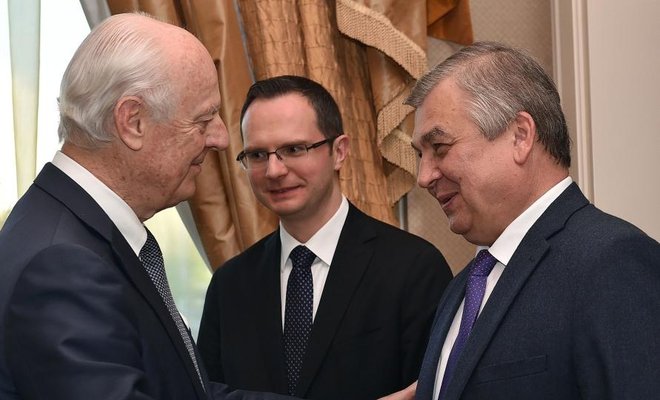Moscow, Beirut- States acting as guarantors in bolstering the ceasefire in Syria have signed a memorandum on four de-escalation zones proposed by Russia during the fourth round of talks held in the Kazakh capital Astana on Thursday.
The three guarantor countries, Russia, Turkey and Iran agreed to set up the four areas by June 4.
However, the Syrian opposition delegation expressed its reservations on the proposal for having Iran as a guarantor.
Despite the opposition’s rejection, the memorandum was announced by Kazakh Foreign Minister Kairat Abdrakhamanov at the end of the meeting. The minister said a next round of talks in Astana is scheduled for July.
Preparatory talks would be held in Ankara at the level of experts two weeks ahead of the fifth round of the Astana talks with an aim to delineate the borders of the de-escalation zones and to discuss the memorandum’s technical issues.
The US State Department, which had only dispatched an observer to the talks, said it welcomed signing the memorandum but expressed concern about Iran’s role.
“We continue to have concerns about the Astana agreement, including the involvement of Iran as a so-called ‘guarantor’,” State Department spokeswoman Heather Nauert said.
Russia’s envoy Alexander Lavrentiev said the zones would remain for six months, but their presence could be extended.
At the battlefield, the remaining ISIS jihadists withdrew on Thursday from their last positions in the northern city of Tabqa following more than 20 days of bloody confrontations with Syrian Democratic Forces (SDF) in the streets and alleyways of the city.
The liberation of Tabqa now triggers the countdown for the battle of Raqqa, ISIS’ stronghold in Syria.
The Syrian Observatory for Human Rights announced that ISIS militants were permitted to withdraw from Tabqa as part of a deal signed with SDF forces, which were later able to entirely control the city, backed by US forces and coalition warplanes.
